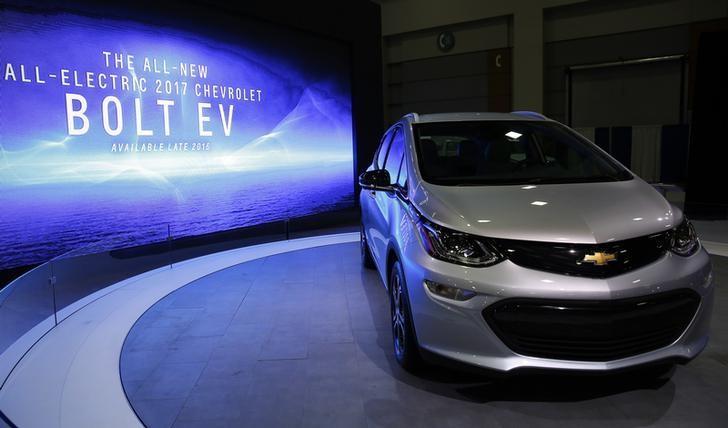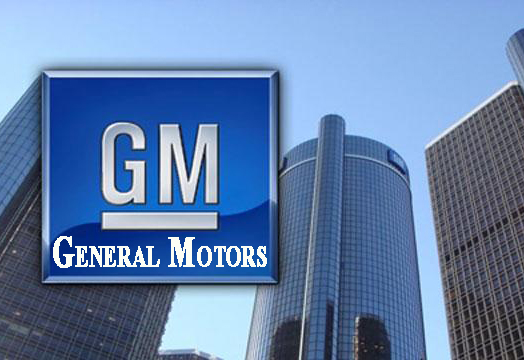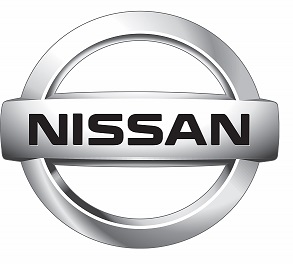Now Reading: GM prepares to expand Bolt EV output, seeks Congress help
-
01
GM prepares to expand Bolt EV output, seeks Congress help
GM prepares to expand Bolt EV output, seeks Congress help

General Motors CEO Mary Barra contacted the United States Congress on Wednesday to expand a customer tax credit for electric vehicles as the automaker stated it would increase production of its EV Chevrolet Bolt in reaction to positive response.
Barra also got in touch with U.S. regulators to consider when scoring automakers’ emissions the capacity for autonomous ridesharing vehicles to lower carbon dioxide emissions and petroleum intake. The Trump administration is reviewing whether Obama administration emissions standards that called for approximately doubling average U.S. lorry fuel performance by 2025 are valid.
“We feel tax credits should be broadened so our clients continue to get the advantage moving forward,” Barra informed an energy conference in Houston. “Our company believe in an all-electric future.”
GM has sold over 160,000 plug-in and full-electric vehicles qualified for the credit. The $7,500 customer tax credit phases out over a 12-month-period not long after an automaker hits the 200,000 mark and the automaker is expected to hit the mark later on this year. The tax credit is targeted at assisting defray the cost of costlier electric vehicles.
Presented in October 2016, the Bolt was the first mass-produced electric automobile to go over 200 miles (320 km) between charges, and cost a price tag of under $40,000.
Electrically powered vehicles represent just a portion of GM’s total sales. In 2017, an analyst approximated GM loses $7,400 on every Bolt it sells. GM does not reveal individual vehicle profitability, company spokesman Pat Morrissey stated by phone.
GM sold about 26,000 Bolt EVs worldwide last year, mostly in the United States. The company refused to say how much it would trek production when it adds production later on this year at an assembly plant north of Detroit.
Stay Informed With the Latest & Most Important News
Previous Post
Next Post
-
 01Polestar Boss Says It’s Time To Outrun BMW M And Mercedes-AMG
01Polestar Boss Says It’s Time To Outrun BMW M And Mercedes-AMG -
 02Spy Shots: 2027 Mitsubishi Pajero Spotted in Testing Ahead of Possible U.S. Return
02Spy Shots: 2027 Mitsubishi Pajero Spotted in Testing Ahead of Possible U.S. Return -
 032026 Toyota Hilux EV: A Powerful Truck with Silent Torque
032026 Toyota Hilux EV: A Powerful Truck with Silent Torque -
![2027 Mercedes-Benz S-Class Debuts with V8 Engine [Photo Gallery]](https://speedlux.com/wp-content/uploads/2026/01/2027-Mercedes-Benz-S-Class-33-155x125.jpg) 042027 Mercedes-Benz S-Class Debuts with V8 Engine [Photo Gallery]
042027 Mercedes-Benz S-Class Debuts with V8 Engine [Photo Gallery] -
 052026 Corvette ZR1 Production Surges Past Expectations as Output Clears 1,000 Units
052026 Corvette ZR1 Production Surges Past Expectations as Output Clears 1,000 Units -
 06Spy Photos: VW ID. Polo GTI Goes Electric with 223 HP and 280 Miles of Range
06Spy Photos: VW ID. Polo GTI Goes Electric with 223 HP and 280 Miles of Range -
 07Hyundai Palisade’s Breakout Year Shows How Quickly the Market Can Turn
07Hyundai Palisade’s Breakout Year Shows How Quickly the Market Can Turn



![2027 Mercedes-Benz S-Class Debuts with V8 Engine [Photo Gallery]](https://speedlux.com/wp-content/uploads/2026/01/2027-Mercedes-Benz-S-Class-33-700x394.jpg)











































